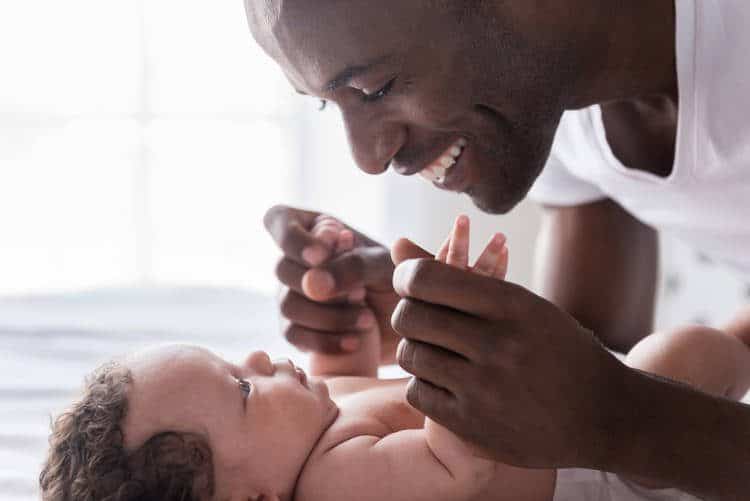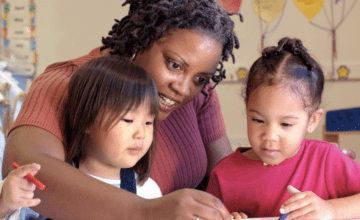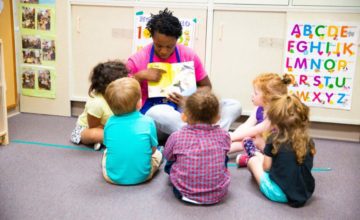This time is all about parents and babies falling in love. Most babies are eating and sleeping more regularly. They are also responding more actively to parents and caregivers.
Over the next few months, you will begin learning about your baby’s preferences—what he likes and dislikes, how she prefers to sleep, eat, and play. What are you learning about your 3- to 6-month old?
Spotlight on Language Learning Between 3 and 6 Months
Babies are not just listeners—they are talkers, too. Beginning at about 2–3 months, they use their voices to coo, laugh, and squeal. And even young babies are learning the “rules” of conversation. As early as 3–4 months, babies will stay quiet while someone else is talking. They wait for silence, then babble, then wait for your response.
By about 6 months, babies begin to repeat certain sounds like ma-ma-ma or da-da-da. Around 1 year, they make the connection in their minds between a sound they make—baba—and the object it stands for—a bottle. After they make this link, your baby’s use of words really starts to grow!
What You Can Do
- Talk to Your Baby Babies learn language when adults talk with them and respond to their babbles. Research shows that children who are talked to the most have the largest vocabularies later on.
- Respond to your baby’s sounds. When she babbles, take a moment to reply: Do you like splashing in the tub? It’s a lot of fun, isn’t it!
- Watch your baby. Babies tell us what they are thinking and feeling through facial expressions and body movements. When you see your baby reach for something, put his action into words: You see me eating—you want to grab my spoon!
- Sing to your baby. Singing lets children hear and, later, repeat words and phrases. It’s also a great way to have fun and bond with your baby.
- Read to your baby. Reading together at this age builds a love of books.
- Tell stories to your baby. Ask grandparents and other family members to share stories as a way to build family connections.



